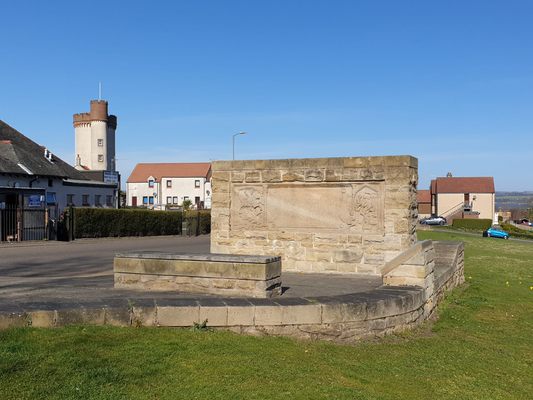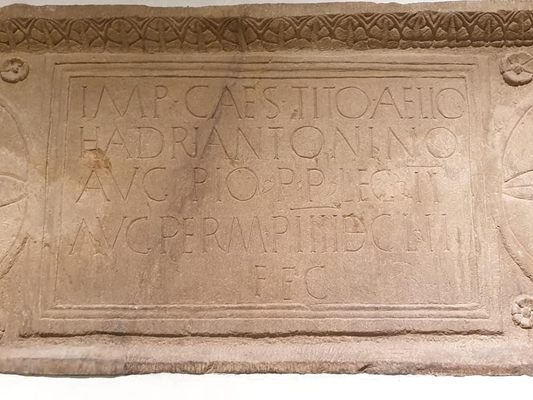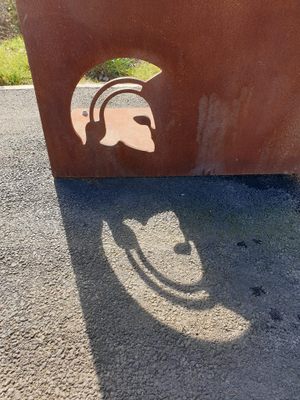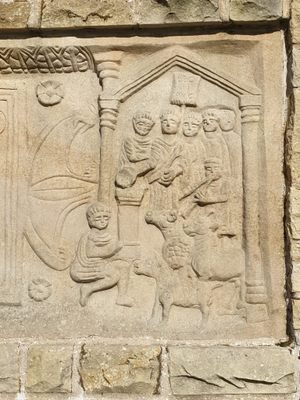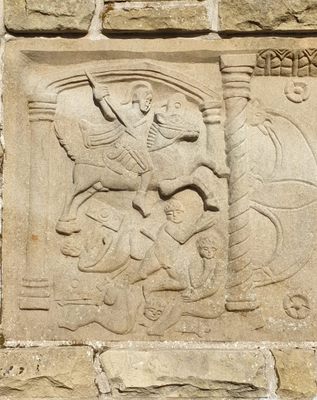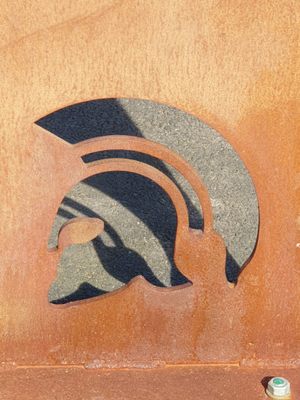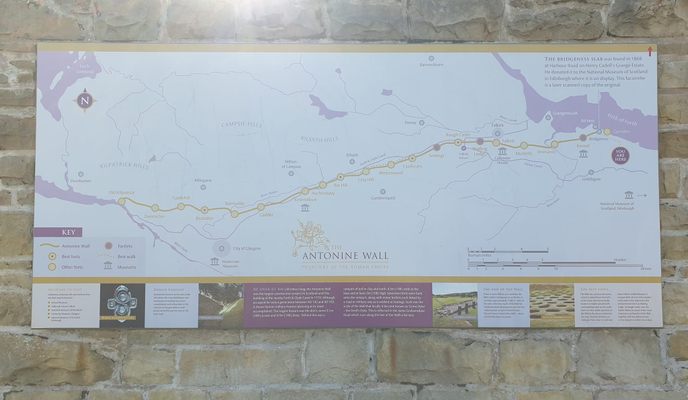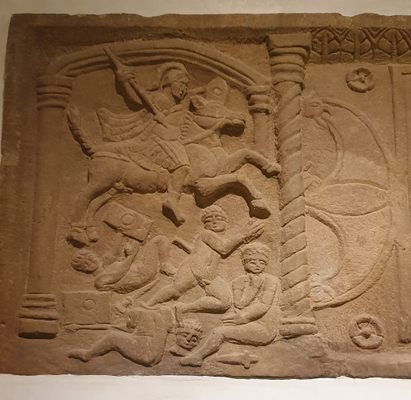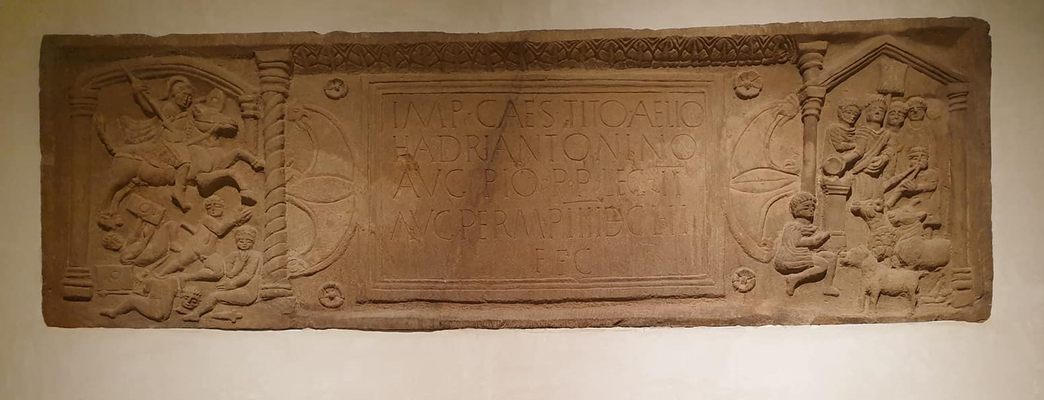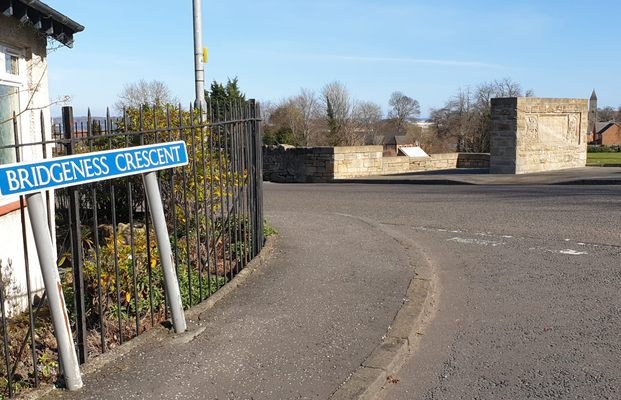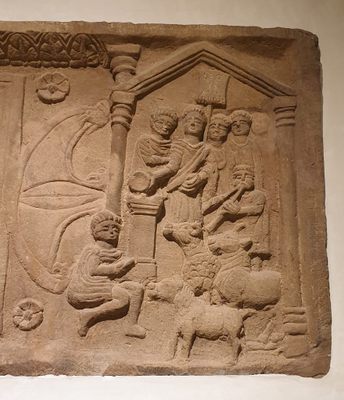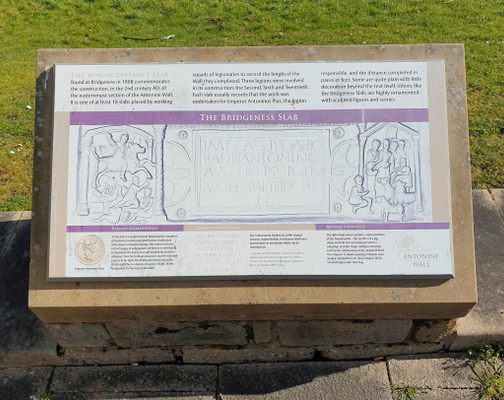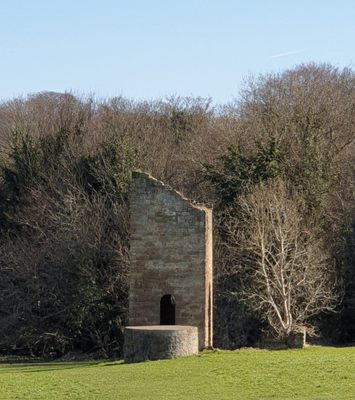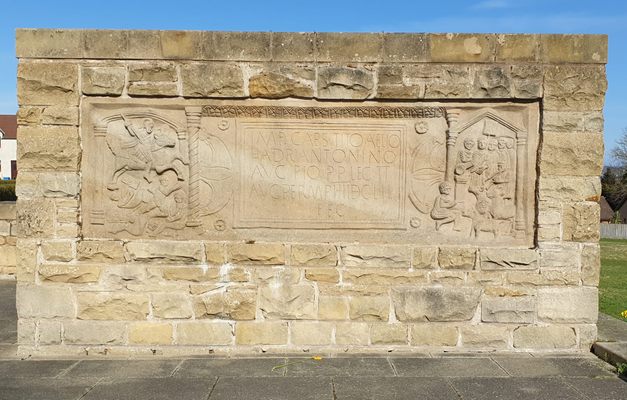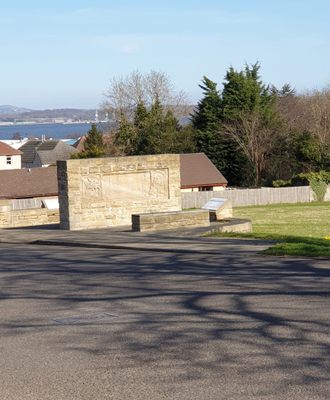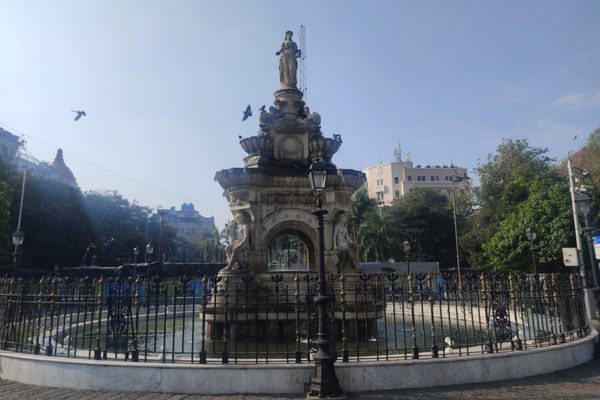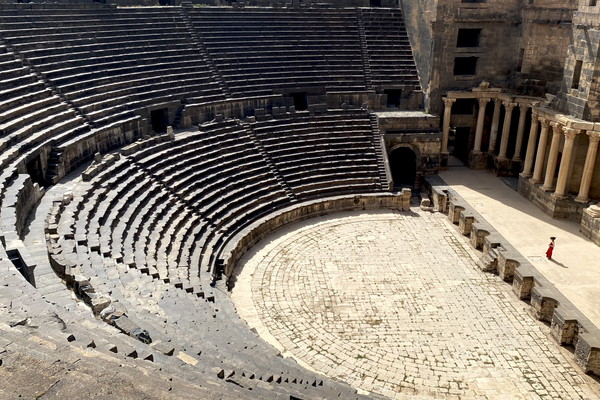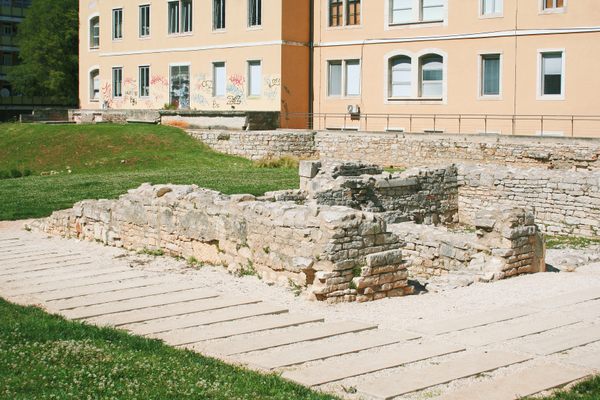About
Situated alongside Kinningars Park, near the southern banks of the Firth of Forth, stands a piece of stonework known as the Bridgeness Slab. This nine-foot-wide square piece of sandstone is a replica of one of the finest pieces of Roman artifacts to be found in Scotland. First discovered in 1868 and then moved to The National Museum of Scotland in Edinburgh, this relic is known as a distance marker, indicating the beginning of the Antonine Wall.
The Antonine Wall was constructed around 142 CE, and runs parallel to the Firth Forth, for nearly 40 miles across Scotland's Central Belt. This 2008 UNESCO World Heritage Site, indicates the northernmost occupied territory by the Romans in Britain. The Bridgeness Slab has been regarded as the best preserved and finely detailed of all Scottish distance markers. This full-size replica was unveiled in September 2017.
The stone itself consists of three sections, each intricately detailed and relaying a different message to the observer. The central section is composed mainly of lettering and indicates all the persons involved in the wall construction, from the emperor Antoninus Pius, (from whence the turf-constructed wall gets its name), to his legion of soldiers.
The right-hand panel shows a scene of sacrifice to the God of War, Mars. The remaining section indicates a tableau of conquest.
Related Tags
Know Before You Go
The copy is freely accessible at all hours of the day.
The original is located on Level 0, Early People, in the National Museum of Scotland. Free entry, open daily from 10 am - 5 pm.
Flavors of Scotland: Beyond the Haggis
Smoked seafood, single malt whisky, and warm hospitality.
Book NowPublished
February 13, 2024
